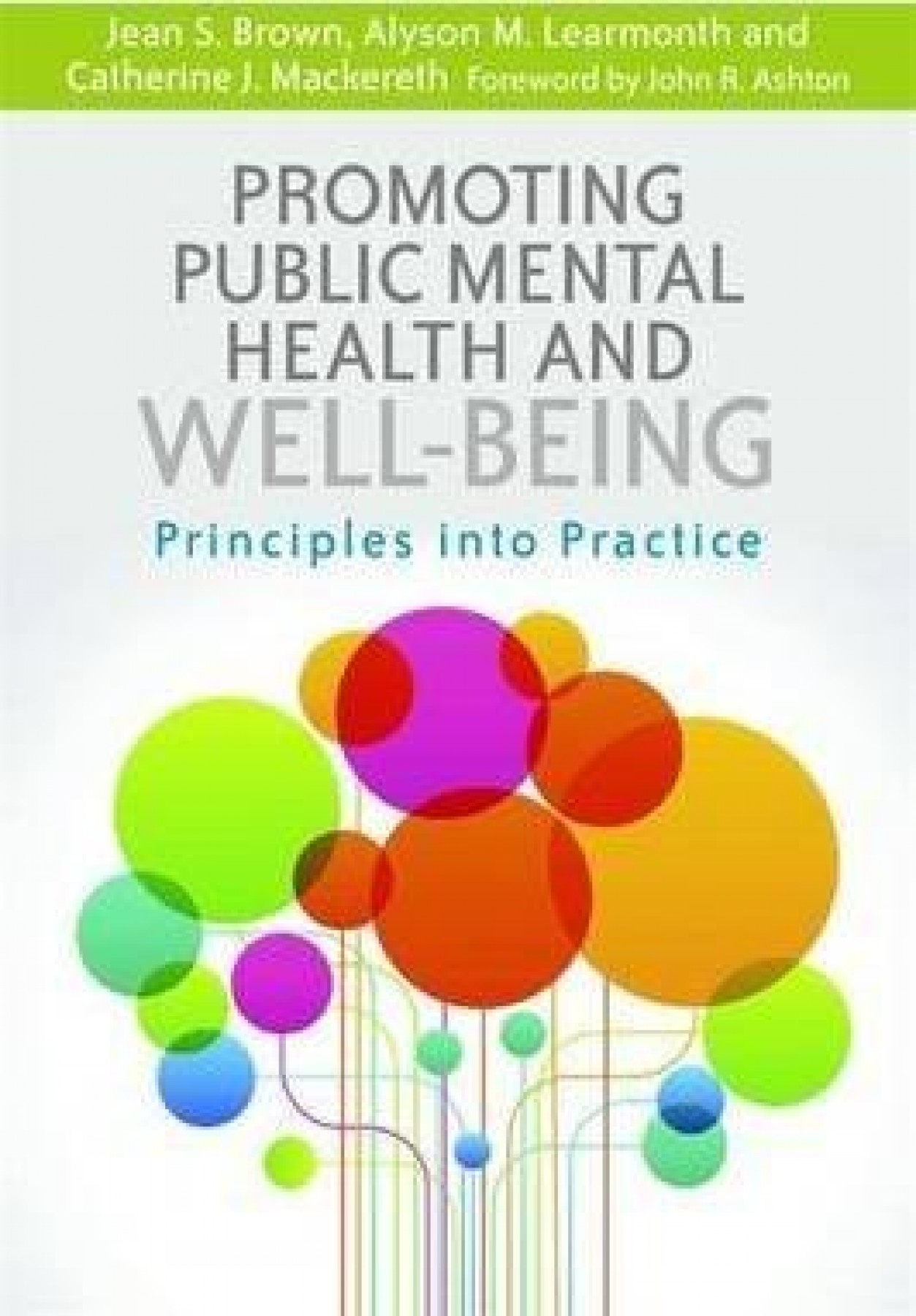Choosing this book to review from the Mental Health Foundation information service was an easy decision for me. Right from the introduction, the authors challenge the reader to answer the question: what creates mental health and wellbeing? Each chapter begins with key points to ponder and evidence and case studies to support the book’s underlying principles. These are part of the learned experience of most mental health promoters and the authors use the Ottawa Charter as a framework on which to base their strategic thinking.
The mental health strategy in the UK looks to all sectors of the population to work together to promote independence and choice, with six broad objectives as follows: more people will have good mental health; more people with mental health problems will recover; more people with mental health problems will have good physical health; more people will have a positive experience of care and support; fewer people will suffer avoidable harm and fewer people will experience stigma and discrimination.
These are outcomes that are also sought by New Zealand’s health services and are affected by improving the wider determinants of health throughout life. The second chapter asks what affects mental health and wellbeing and begins with examination of the wider social and physical issues.
Key points include: peace is an essential prerequisite for mental health and wellbeing; the impact of housing on mental health and wellbeing is increasingly being recognised as vital both as a cause of and a consequence of mental health problems; many studies have shown a strong association between access to green and open spaces and to nature and better mental health; any approach to public health should address the challenge of sustainability; those with a mental health problem are more likely to be victims of crime than perpetrators, particularly when it comes to violent crime. I found myself reflecting on the similarities between the key points and what Auckland Council is experiencing as the city grows.
The extended case study on the prevention of suicide and self-harm revealed many themes very similar to what we see in New Zealand. Those at higher risk of suicide in UK include men, young people and people aged over 85. Life circumstances associated with depression are likely to be linked to suicide. In this chapter, social services, primary care, accident and emergency departments, alcohol and drugs services and community-based mental health services figure among factors for prevention and treatment.
Other case studies look at what different sectors can do in relation to long-term conditions. The provision of equipment to aid self-management and independent living, with stair-lifts, access ramps, emergency alarms, mobile phones and TV are mentioned. The training of frontline staff to recognise long-term conditions and participatory interventions including social activity and support is highlighted for young and old people.
These case studies, together with the preceding chapters and the 50 references and subject and author index, make this book a long read. Add to this much self-questioning on my part, as well as recognising a need to read many of the books listed!
I am concluding with an abbreviated description of an older woman known to the authors. She smokes and lives alone in a deprived area with little scope for recreational or safe walking. Social isolation is not unlikely; she is no longer going out to work and all these factors make her feel less happy or confident in herself and can lead to depression. The vicious spiral continues. It is harder to get a job when physical health problems adversely affect mental wellbeing but joblessness exacerbates mental ill health.
On the other hand, a positive spiral effect can emerge if action is taken. For instance, if the woman is befriended and gains the confidence to go out once a week, she may then start to gain social contacts and improve her physical fitness. In turn, this will make it easier for her to increase the amount of social contact she has. I recommend the book to people who want to promote the mental health and wellbeing of others and also enhance their own.
Reviewed by Marie Hull-Brown, Mental Health Promoter, Mental Health Foundation
I Need Help Now
Help for you or someone important to you
More

